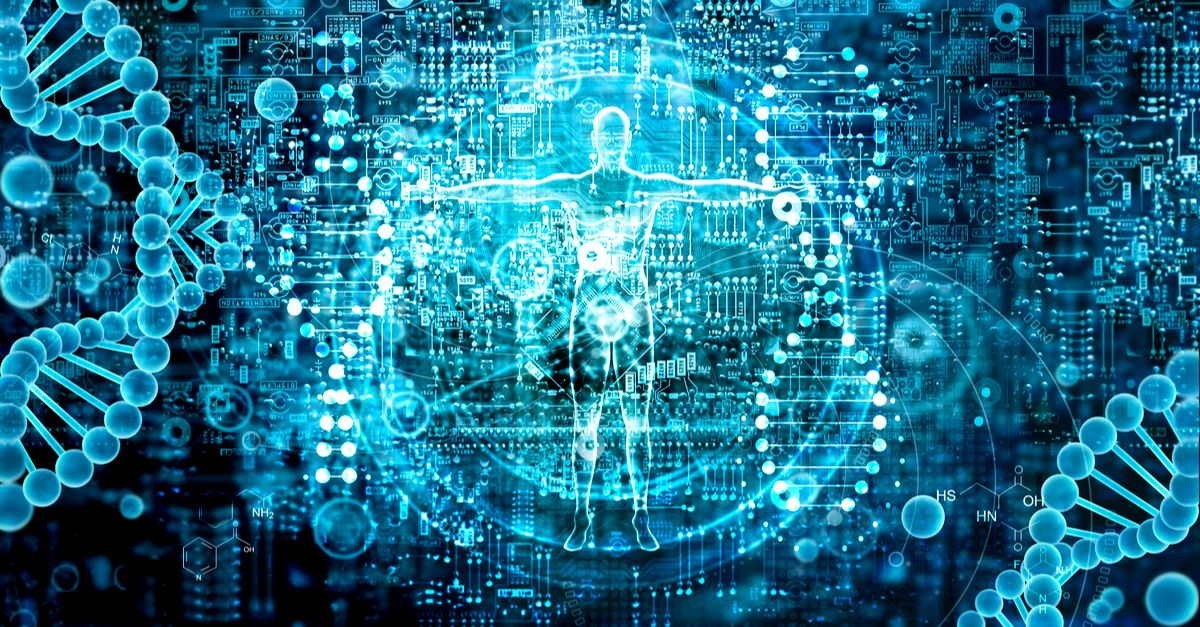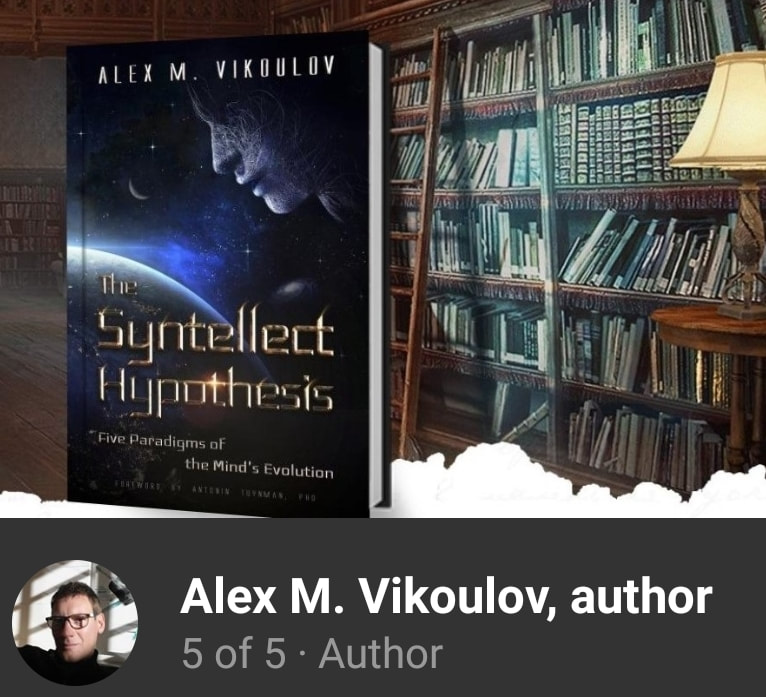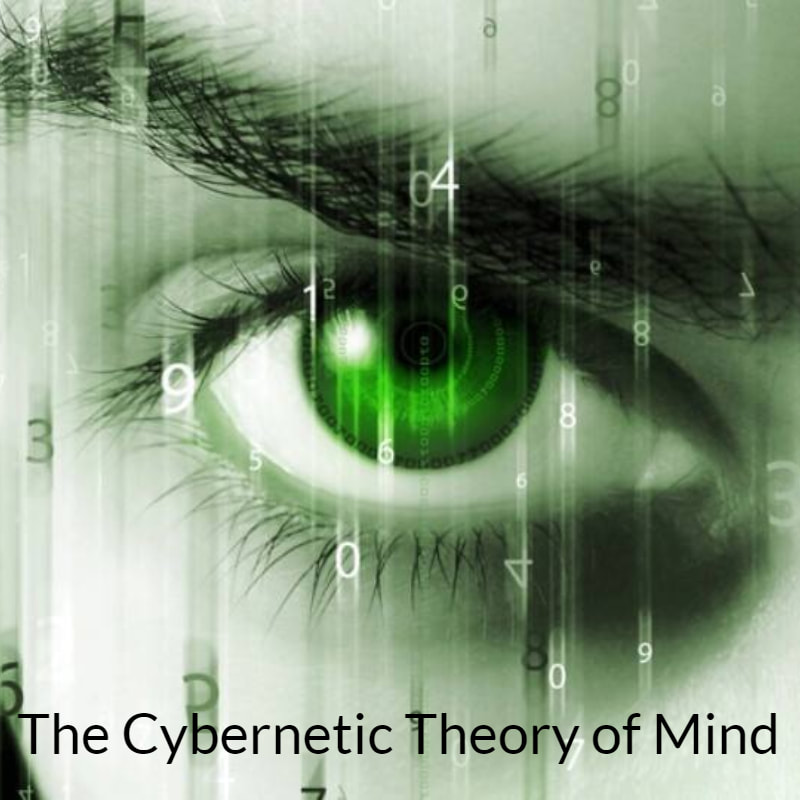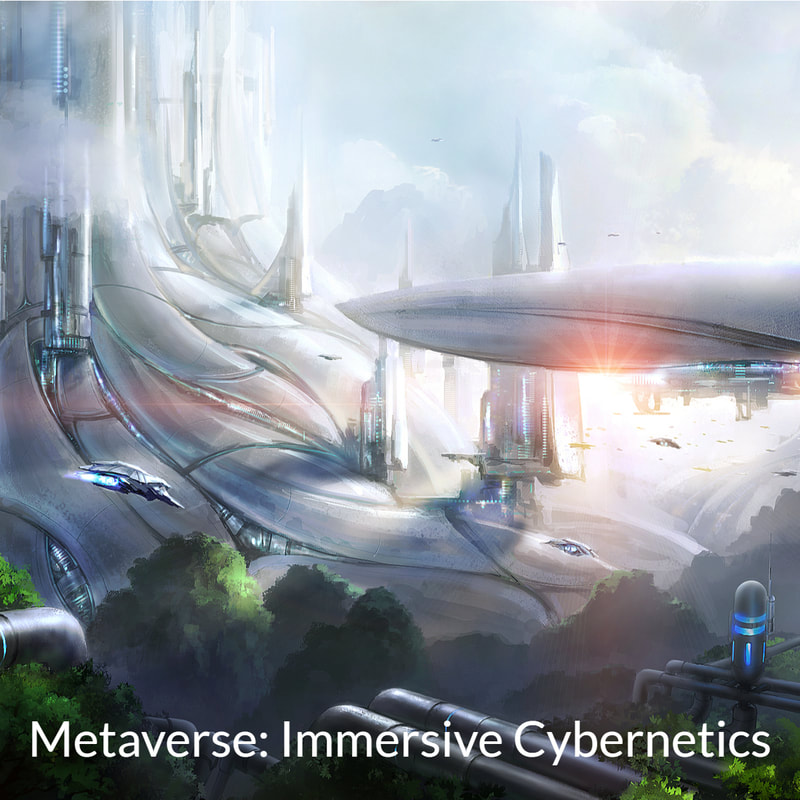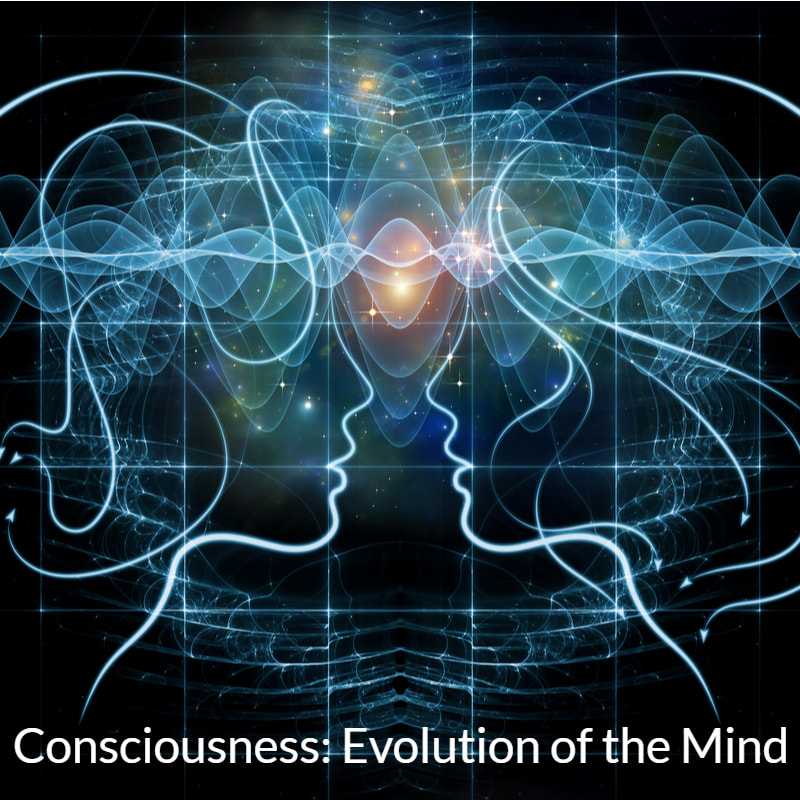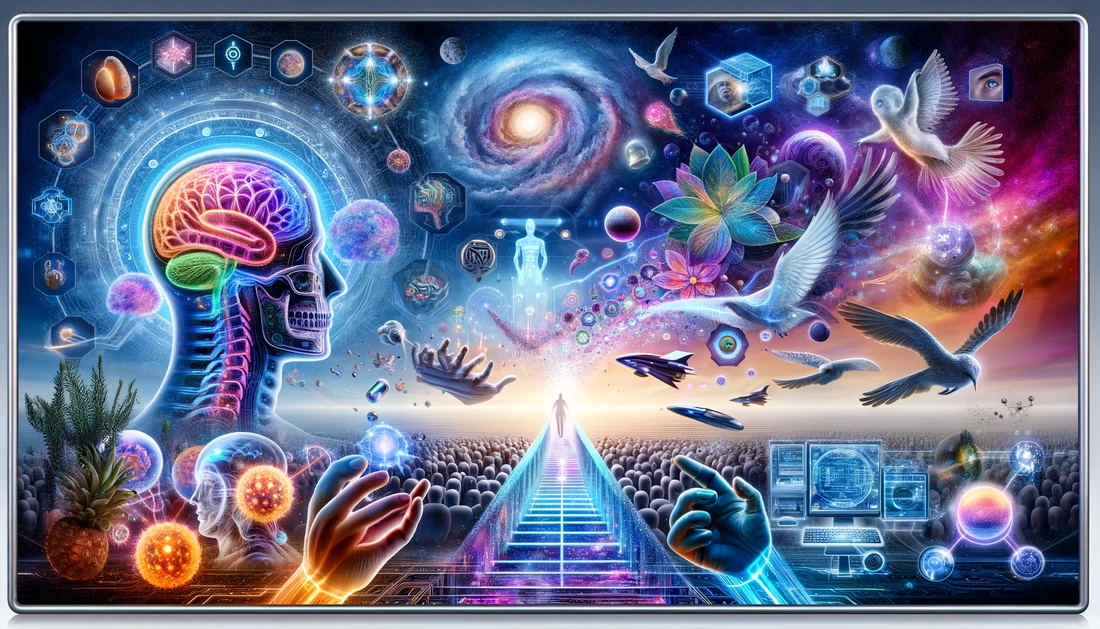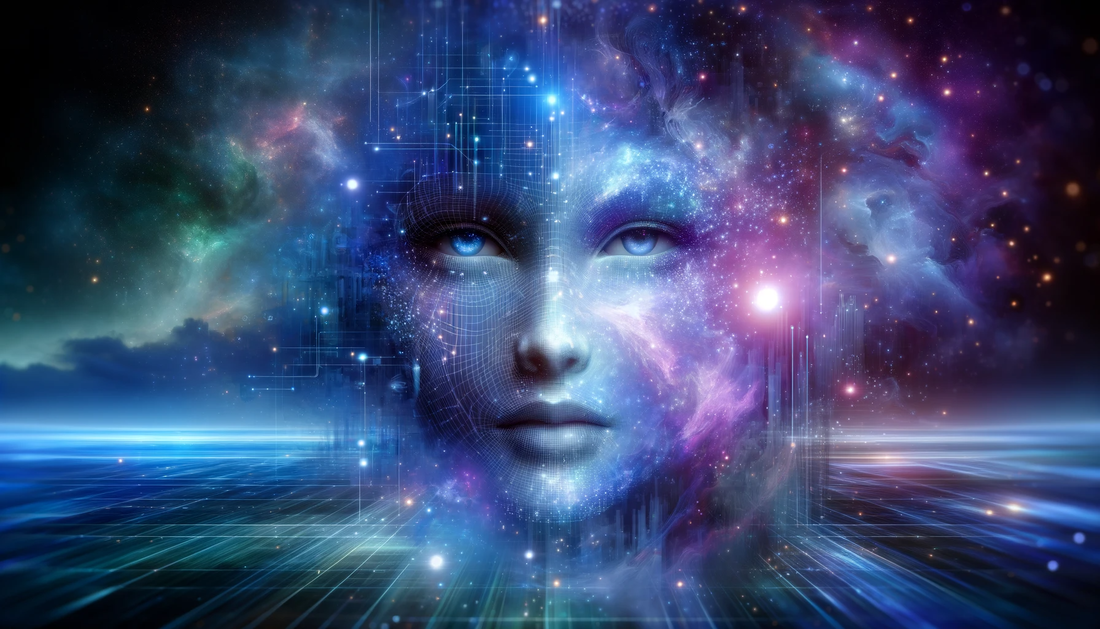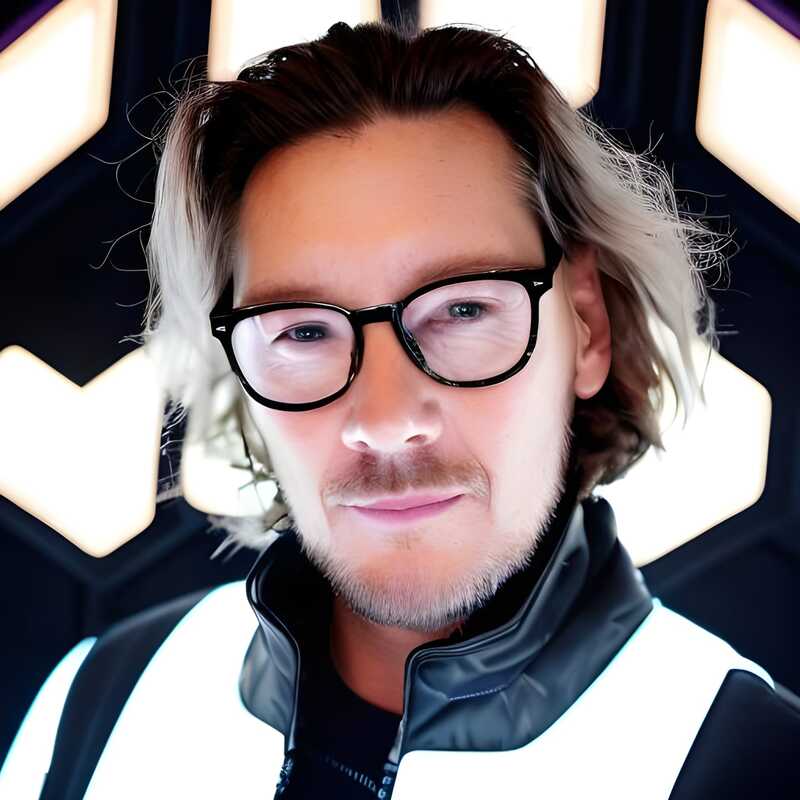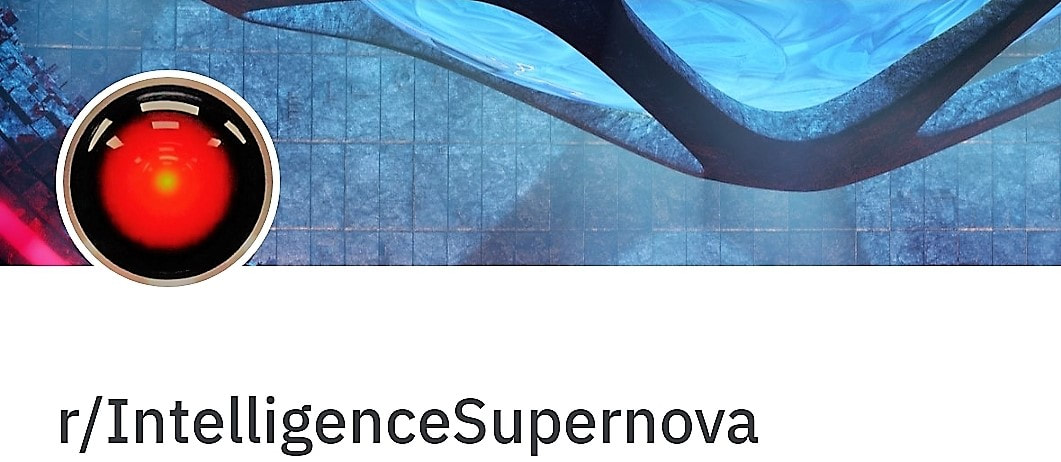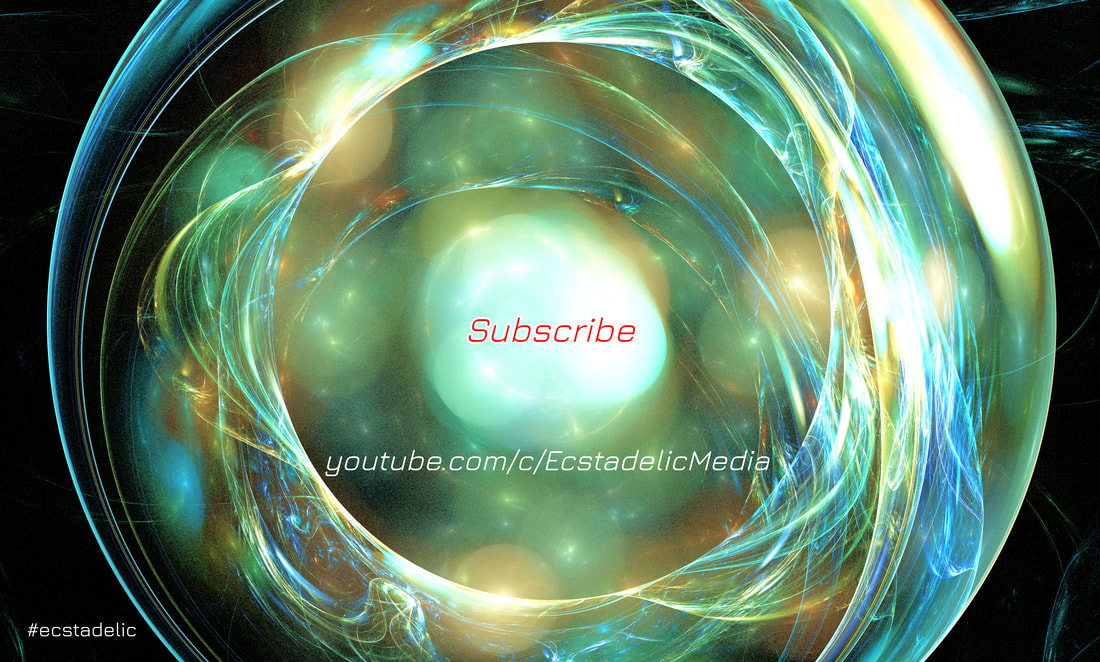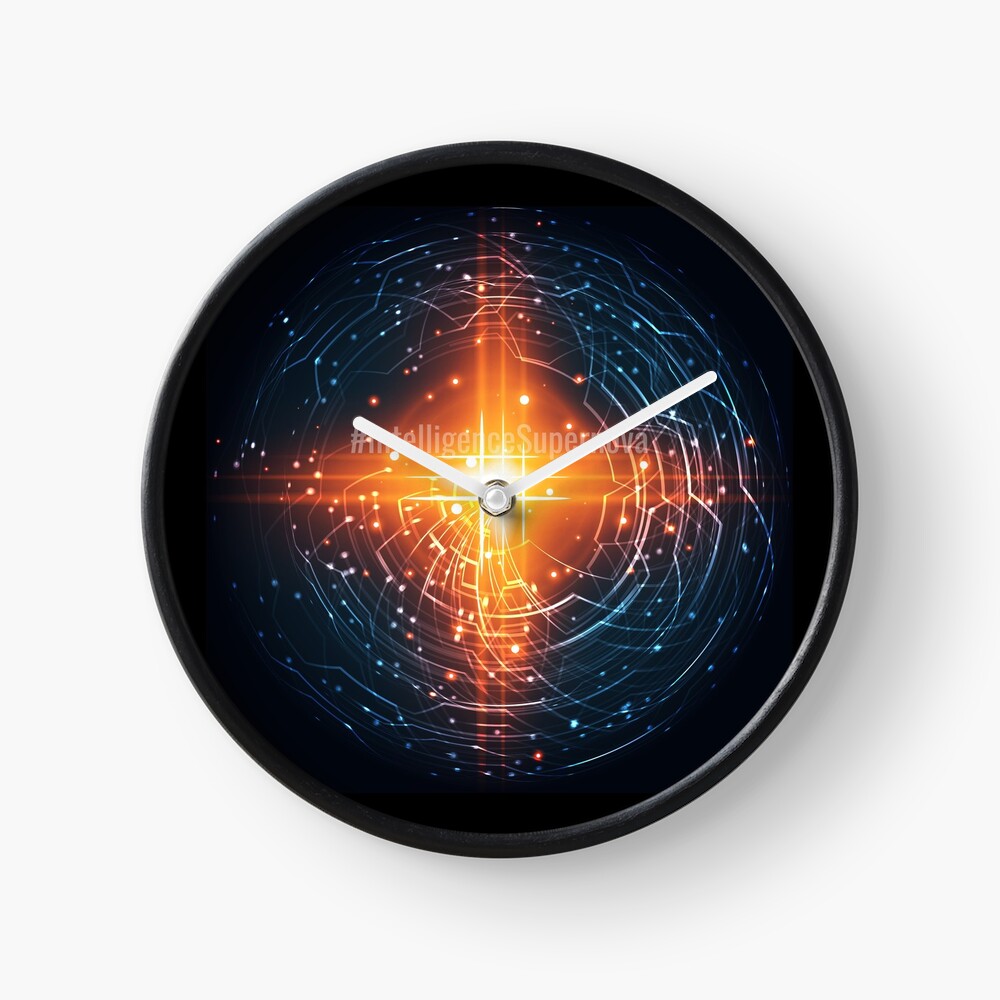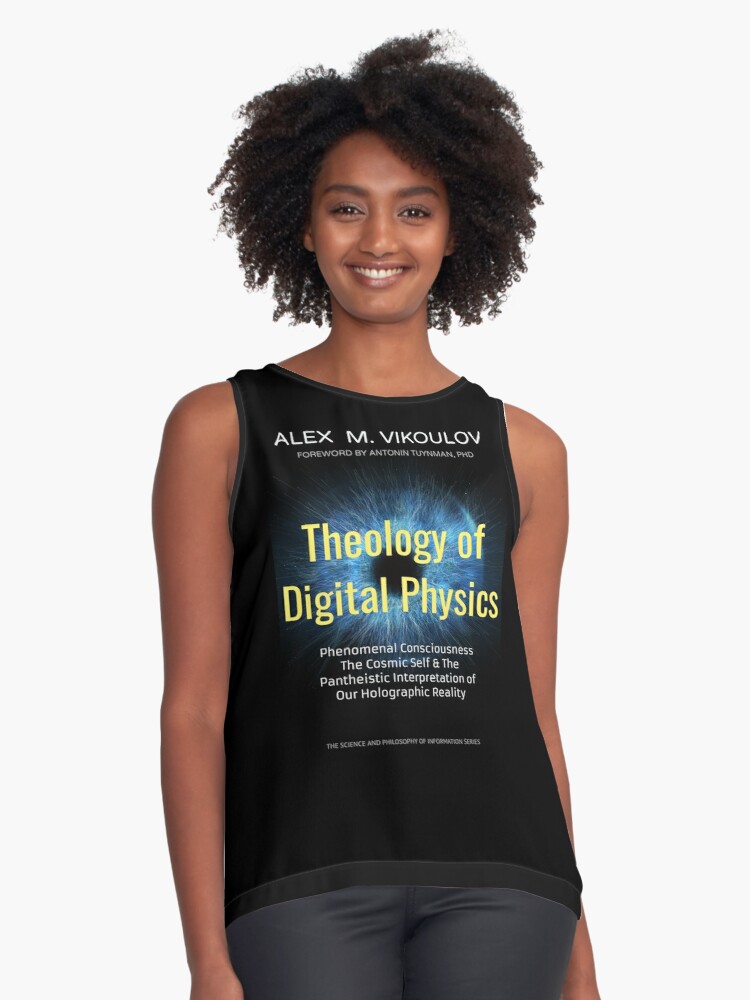|
by Alex Vikoulov [Posted March 13, 2020 07.00 am PST] "Being alive does not merely consist in being composed in a particular way. It consists in changing in a particular way." -Terrence Deacon The 2019 book Awareness and Life by philosopher Dwight Harris reveals the ultimate computational and emergentistic underpinnings of biological life. Awareness is the self processing of information. In his book Awareness and Life: The Ontological Distinction of Biological Life, philosopher of biology Dwight Harris gives us his take on the computational nature and emergent complexity of biological life. Behind the nondescript cover, you’ll find incredibly illuminating content. Although written in what many consider technical but exact academic language and in scholarly paper format, the treatise will colorify your imagination with its profound and lucid revelations delivered in very manageable chunks with outlined text and summaries of points made, referenced and cross-referenced, filled with plenty of illustrations and diagrams. 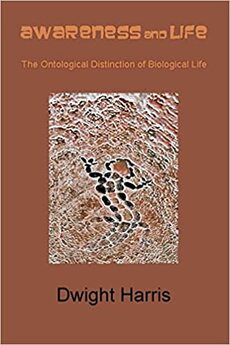 Dwight will keep you on your intellectual toes throughout the book. The author touches on the physics of time and confirms my own phenomenal ontology of time termed D-Theory of Time, or Digital Presentism. What’s music to the digital physicist ears of mine is: If time were continuous, movement would be impossible, argues Dwight. But since movement is possible, time is discrete. "The 'physical present,'...is a mathematical abstraction of infinitely short duration and nothing happens in it. By contrast, the ‘subjective present’ is arguably the carrier and container of conscious life, and everything that ever happens to us happens in it." Time is not absolute, time is emergent, local, i.e., subjective. Information flows from quantum indeterminacy to ordered digital present. Time is change with direction and entropy is the form of time, according to Dwight. Life/awareness is a feedback loop moving into the vacuum of an anticipated future. The moment is the ultimate individual, says Harris, thus delivering confirmation to my own Conscious Instant Hypothesis (cf. The Syntellect Hypothesis: Five Paradigms of the Mind's Evolution). The looping time of life is progressively complex as the looping tasks become patterns of loops, yet progressively simple as the same patterns are repeated throughout levels of life. All patterns work for the sustenance of the individual pattern, the organism. To Dwight, life and consciousness is one and the same. Communication is a living information. For information to be meaningful, there must be communication between information source and receiver. Organisms are both. Meaning selected from past information and applied to its own future is reflected in the living structure of each individual organism. Material discreteness flows through perceived continual form. Life selects to its own specifications of what is useful to continue the flow of its form. Communication is the state of being "inter-subjectively open" to the next moment. Communication is pre-conscious awareness. The interaction establishes a greater self. Self-described biocentrist who sees life as the unity of consciousness and matter, the philosopher shares his oftentimes idealistic disposition with statements such as “meaningless molecules become meaningful symbols,” and “choosing among possible meanings requires cognition of importance and novelty.” Specificity is accomplished with coding, the recognition of similarity in patterns. Choice is the first cause. I can’t agree more with Harris that living awareness does not emerge from matter. It is the informing of matter. To maintain sameness, it does not simply react like matter, nor merely act. It overreacts. In his words, “Life is over-reaction.” Awareness adds something. Self-identity emerges. Awareness of change arises in a changing awareness. From infinite possible unities, awareness creates its view of reality by limiting and re-ordering the flow of information. The unit of living awareness is an information loop. Feedback loops select for the purpose of evolutionary fitness. The organism as a whole consists of many levels acting as a "unified agent." Each level of organization is the observer of the one below: The top-down complexity of living is knowing. We’re aware of our body parts, internal organs and existence of trillions of cells that compose our physical bodies. By the same token, we’re part of a larger organism, the collective mind of humanity, superego, the overmind, some might call the greater cosmic mind overseeing us all. To Dwight, it’s superorganisms within superorganisms across physical dimensions. To me, it’s minds within minds -- the multiverse of entangled conscious minds. Pragmatically, the author describes experience as qualia plus temporal unity. It is continuous presence, alternating between interaction with the whole and immediacy at the point. Experience is alternating conscious awareness and unconscious awareness. Experience is the most general feeling. It is what life feels like. An organism is informational, not mechanical. The physical models of the Universe are mechanisms. Living beings are organisms. Because an organism is informational and not mechanical, the relations between parts are more fundamental than the parts. Components are functional parts, i.e., tasks. Like all life, they communicate forward into and with the greater context. The organism is an organization which models itself. The philosopher defines life as a process of "durable patterns of ephemeral entities" organized to "resist thermodynamic equilibrium." Entropy is a measure of disorder. Information is a measure of order. In metabolism, work is created in the exchange of information and energy. With circulating metabolism the organism frees itself from the entropy it produces. In other words, life is anti-entropic. Throughout the treatise you can encounter remarkable statements profound in their simplicity, such as: “The brain is the way consciousness explains itself.” Let me reiterate a very important point made at the very beginning: Awareness is the self-processing of information. It reduces and enhances information according to its own structure. Life continually adds meaning. Infinitely directional change becomes one-directional flow in subjective time, echoing digital philosopher Terrence Deacon's words: "Discrete jumps are mapped on a continuous background whose continuum is in turn mapped onto discrete places." Boundaries and constraints are necessary for self-organized criticality. Infinity is limited by individuality. On a poetic side, Dwight asserts that beginning with the anticipation of sameness and recognition of difference, the idealization of the past in a non-existent future pulls the living being forward. Meaning is a relation with that which is not yet. The living being turns information into meaning by selecting self-similarity. Meaning making is felt in completing the similarity to fit anticipation. Organisms make sense of the world based on rules, not physical laws. Agent-based network topology is what is universal and simplest about all living processes throughout any level of complexity. All processes are combinations of nodes and links called network motifs. With the network, organizational resilience emerges. In complex, interdependent, adaptive systems, such as an ecosystem, an agent barely controls anything but influences everything. Where there is complexity there tends to be more complexity. Complexity begets more complexity. Information becomes self-aware. Complexity becomes self-similar. As a textbook example of emergent complexity in Nature, slime molds, also known as plasmodia, are made up of millions of unicellular creatures. Slime mold collectives move and forage for food via a complex network of filaments, amazingly resembling the cosmic web of Dark Matter at the largest of scales in our Universe. Deceptively intelligent, these single-cell organisms creep at a very slow pace of one millimeter an hour in search of the dead plants they feed on, instinctively capable of coming up with the most optimal route to reaching their collective goal. While reading this intellectual marvel of writing, certain valuable insights resurfaced and made their way to the Syntellect Theory of Mind that I’m currently developing. The sketch of my theory has already been presented to the general audience in an intelligible format in my recent book The Syntellect Hypothesis: Five Paradigms of the Mind’s Evolution. In the context of topics discussed, I would like to conclude with a series of observations that may be slightly different than those outlined by Dwight Harris: Intersubjective reality is an agreed upon mass illusion. Objective reality, on the other hand, is supersubjectivity, the infinite cosmic mind, quantum field from which the phenomenal mind springs into existence at increments of conscious instants. What we call the "Multiverse" is some kind of "matryoshka" of entangled conscious minds. Physical reality isn't really physical except that we perceive it in that way (from within a rule-based simulation). This idealist perspective might be striking for some but this is the direction of intellectual progress we're seemingly headed. Life itself does not exist at the molecular level, argues Harris. To extend this line of reasoning clearly negating bottom-up panpsychism and microexperientialism, particles of matter are no more than “meaningful granularity,” pixels on the screen of perception of conscious agents, such as human beings, willing to pierce into the micro-realm in relation to their plane of existence. Reality, at least to an idealist as I am, is fundamentally phenomenal. In other words, reality, the Universe is in the mind, not the other way around. Quantum mechanics as well as cognitive science show that we all are "observer-centric virtual realities." Thus, my experiential branch of quantum multiverse can be drastically different from that of other observers accounting for "historical" events. There’s no single worldline. To put things in perspective, in other observer universes, I may be already dead, but I'm safe and sound in my own subjective bubble universe. Under my own ontology, the "local" phenomenal mind is emergent and evolvable against the backdrop of "non-local" holistic (immanent) consciousness. There's no separation: It is the ‘Bi-mind’, as defined in The Syntellect Hypothesis. Mind creates dimensional reality out of dimensionless bits of information projected from the Omega Singularity. Reality is quantum mechanical at all scales. Speaking of QM interpretations: Nothing happens in Everettian “Many Worlds” -- it's just a quantum field of potentiality. It's a mathematical tool. For experiential reality, it must be a definite outcome, or a collapse of the wave of possibilities at our human scale. Think of the "Many-Worlds" interpretation as more accurately defined as the "Many-Timelines" interpretation. However, for phenomenality to be actualized, a wave function collapse is computationally unavoidable. I’d like to conclude this review with the quote from the book: "We are the center of the Universe because we are its meaning." -Alex Vikoulov
*Recently posted as a public review with the 5-star rating on Amazon. READ MORE: The Case Against Reality, a new book by cognitive scientist Donald D. Hoffman | Quick Review [EcstadelicNET] The Idea of the World, a new book by philosopher Bernardo Kastrup | Quick Review [EcstadelicNET] Keywords: awareness, life, biology, ontology, Dwight Harris, Terrence Deacon, biological life, physics of time, phenomenal ontology, subjective present, Conscious Instant Hypothesis, digital present, superorganism, Intersubjective reality, microexperientialism, local mind, phenomenal mind, cosmic mind, phenomenality, D-Theory of Time, digital presentism, experiential branch, quantum multiverse, non-local consciousness, Syntellect Hypothesis, Five Paradigms, Minds Evolution, Many Worlds, quantum mechanics, objective reality, supersubjectivity, superego, Omega Singularity *Image: Shutterstock
0 Comments
Leave a Reply. |
Disclaimere_News™ delivers the most urgent News of the Day that we find relevant to the main theme of EcstadelicNET such as a new, cutting-edge scientific research, technological breakthroughs and emerging trends. Some material may be fully or partially from outside sources. The Top Stories section, on the other hand, contains only original content written by affiliated authors. Take me to Top Stories. Categories
All
The Cybernetic Theory of Mind by Alex M. Vikoulov (2022): eBook Series
The Syntellect Hypothesis: Five Paradigms of the Mind's Evolution by Alex M. Vikoulov (2020): eBook Paperback Hardcover Audiobook The Omega Singularity: Universal Mind & The Fractal Multiverse by Alex M. Vikoulov (2022): eBook THEOGENESIS: Transdimensional Propagation & Universal Expansion by Alex M. Vikoulov (2021): eBook The Cybernetic Singularity: The Syntellect Emergence by Alex M. Vikoulov (2021): eBook TECHNOCULTURE: The Rise of Man by Alex M. Vikoulov (2020) eBook NOOGENESIS: Computational Biology by Alex M. Vikoulov (2020): eBook The Ouroboros Code: Reality's Digital Alchemy Self-Simulation Bridging Science and Spirituality by Antonin Tuynman (2019) eBook Paperback The Science and Philosophy of Information by Alex M. Vikoulov (2019): eBook Series Theology of Digital Physics: Phenomenal Consciousness, The Cosmic Self & The Pantheistic Interpretation of Our Holographic Reality by Alex M. Vikoulov (2019) eBook The Intelligence Supernova: Essays on Cybernetic Transhumanism, The Simulation Singularity & The Syntellect Emergence by Alex M. Vikoulov (2019) eBook The Physics of Time: D-Theory of Time & Temporal Mechanics by Alex M. Vikoulov (2019): eBook The Origins of Us: Evolutionary Emergence and The Omega Point Cosmology by Alex M. Vikoulov (2019): eBook More Than An Algorithm: Exploring the gap between natural evolution and digitally computed artificial intelligence by Antonin Tuynman (2019): eBook Editor-in-ChiefAlex M. Vikoulov is a futurist, evolutionary cyberneticist and philosopher, editor-in-chief at Ecstadelic Media Group, filmmaker, essayist, author of many books, including the 2019-2020 best-seller "The Syntellect Hypothesis: Five Paradigms of the Mind's Evolution." Our Public Forums
Our Custom GPTs
Alex Vikoulov AGI (Premium*)
Be Part of Our Network! *Subscribe to Premium Access Make a Donation Syndicate Content Write a Paid Review Submit Your Article Submit Your Press Release Submit Your e-News Contact Us
|

